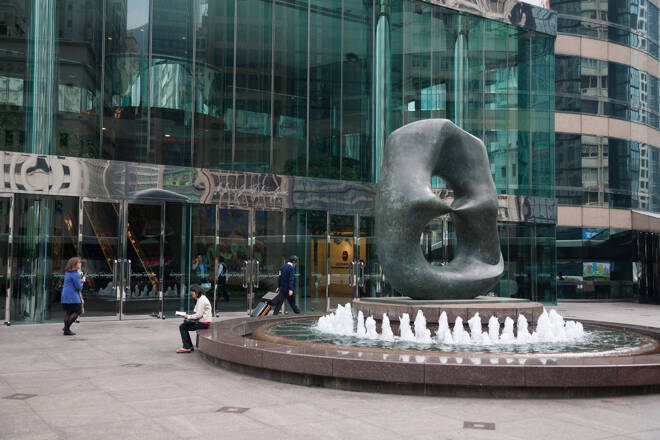Advertisement
Advertisement
Hang Seng Index, ASX200, Nikkei 225: Fed Chatter to Offer Support
By:
It is a relatively busy session for the Hang Seng Index and the broader markets, with investors likely to respond to market-friendly Fed chatter.
Key Insights:
- It is a likely bullish start to the Tuesday session, with the ASX and Nikkei futures flashing green.
- This morning, we expect the Asian markets to react to Fed commentary from Monday and the latest bets on Fed July and September interest rate hikes.
- However, Australian business and consumer confidence surveys will influence the ASX 200.
Market Overview
The Asian markets are set for a bullish opening this morning. On Monday, a quiet US economic calendar left FOMC member speeches to influence sentiment toward Fed monetary policy.
FOMC members Barr, Bostic, and Daly swayed sentiment in favor of riskier assets, announcing the Fed monetary policy tightening cycle is nearing its end.
FOMC Member Mary Daly reportedly favored two further rate hikes this year but added,
“While the risks of doing too little are still greater than those of overdoing it on rate hikes, the two sides are getting into better balance as the Fed nears the last part of its hiking cycle.”
FOMC member Michael Barr noted that he thinks the Fed is close, with Raphael Bostic erring on the side of patience.
According to the CME FedWatch Tool, the probability of a 25-basis point July Fed rate hike was 92.4% versus 93.0% on Friday. Significantly, the chances of the Fed lifting rates to 5.75% in September stood at 23.1%, down from 24.2% on Friday.
The NASDAQ Composite Index responded to the comments, gaining 0.18%, with the Dow and the S&P 500 rising by 0.62% and 0.24%, respectively.
The Asian Session
From the Asian region, it was a relatively busy Monday session, with China inflation numbers for June signaling more economic uncertainty for the Asian region.
China registered zero inflation, with consumer prices falling by 0.2% in June. Economists forecast consumer prices to remain unchanged and for the annual inflation rate to hold steady at 0.2%.
Significantly, the Producer Price Index garnered more interest as investors fret over the economic outlook. In June, the PPI declined by 5.4% year-over-year versus a 4.6% decline in May. Economists forecast a 5.0% decline, signaling a deteriorating demand environment.
On Monday, the Hang Seng Index ended a three-day losing streak, while the ASX 200 and Nikkei struggled. Away from the economic calendar, updates on the US Treasury Secretary Janet Yellen visit to Beijing provided Hang Seng support. Yellen reportedly said that 10 hours of meetings were direct and productive.
This morning, it is a relatively busy session, with Australian consumer and business confidence reports likely to provide direction to the ASX 200.
ASX 200
On Monday, the ASX 200 fell by 0.54%, with the China inflation numbers weighing.
The big-4 had a bearish Monday. The Commonwealth Bank of Australia (CBA) fell by 0.21%, with ANZ Group (ANZ) and The National Australia Bank (NAB) seeing losses of 0.09% and 0.08%, respectively. Westpac Banking Corp (WBC) slipped by 0.05%.
Mining stocks saw heavier losses. Rio Tinto (RIO) and BHP Group Ltd (BHP) ended the day down by 1.14% and 1.11%, respectively, with Fortescue Metals Group (FMG) sliding by 2.03%. Newcrest Mining (NCM) bucked the trend, gaining 1.11%.
Oil stocks had a bearish session. Woodside Energy Group (WDS) and Santos Ltd (STO) fell by 0.47% and 0.54%, respectively.
Hang Seng Index
The Hang Seng ended a three-day losing streak, rising by 0.62%.
Considering the main Index components, Tencent Holdings Ltd (HK:0700) and Alibaba Group Holding Ltd (HK:9988) gained 0.67% and 3.20%, respectively. Bets on an end to the Beijing clampdown delivered another Alibaba breakout.
Bank stocks had a mixed session. HSBC Holdings PLC and China Construction Bank (HK: 0939) rose by 0.49% and 0.23%, respectively. However, The Industrial and Commercial Bank of China (HK:1398) fell by 0.55%.
CNOOC (HK: 0883) ended the day up 0.35%.
Nikkei 225
The Nikkei 225 ended Monday with a 0.61% loss, with a stronger USD/JPY, intervention threats, and economic uncertainty weighing.
The banks had a mixed session. Sumitomo Mitsui Financial Group (8316) fell by 1.16%, while Mitsubishi UFJ Financial Group gained 0.05%.
Looking at the main components, Tokyo Electron Limited (8035) and Sony Corp (6758) saw losses of 1.51% and 1.35%, respectively.
However, KDDI Corp (9433) and SoftBank Group Corp. (9984) gained 0.37% and 0.64%, respectively, with Fast Retailing Co (9983) up 0.26%.
Check out our economic calendar for economic events.
About the Author
Bob Masonauthor
With over 28 years of experience in the financial industry, Bob has worked with various global rating agencies and multinational banks. Currently he is covering currencies, commodities, alternative asset classes and global equities, focusing mostly on European and Asian markets.
Advertisement
